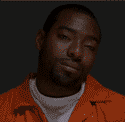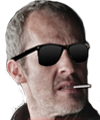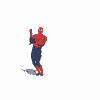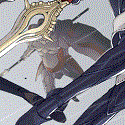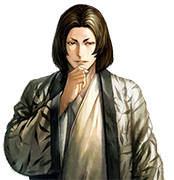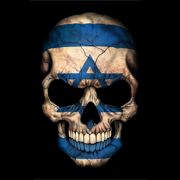|
Arglebargle III posted:What a coincidence, we were recently talking about the Three Kingdoms period in the Classical History thread.
|
|
|
|

|
| # ? Apr 20, 2024 03:14 |
|
Yuan Shu is the worst.Xander77 posted:Keep it up. I actually haven't posted more partly because it takes a while to write because there are so many details to check, but also because there are so many details and backstabs and reverses that I'm afraid I'll get something wrong. It's been 30 days since that last post. Arglebargle III fucked around with this message at 13:54 on Nov 2, 2014 |
|
|
|
Some side notes (disclaimer: information may not be accurate): Lu Bu's infamous cockroach hat is probably not what he wore in life, but memetic mutation based on costumes in Chinese Opera (China's version of Passion plays/minstrel shows, effectively)--characters who were known for their combat prowess wore giant feathers on their heads, with the length of the feathers denoting bad-rear end-ness. Diao Chan's only historical basis as someone who might have existed is that Lu Bu is said to have had an affair with one of Dong Zhuo's ladies in waiting--Diao Chan is not even a name of a person at all, but a reference to the headwear of high court officials. Apparently, Dong Zhuo was so fat that when they took hold of his corpse and burned it, it took days for all of it to be consumed.
|
|
|
|
Arglebargle III posted:Yuan Shu is the worst. quote:I actually haven't posted more partly because it takes a while to write because there are so many details to check, but also because there are so many details and backstabs and reverses that I'm afraid I'll get something wrong. It's been 30 days since that last post.  Worst case scenario, use the LP to compose drafts for proper posts in more serious forums. dotchan posted:Apparently, Dong Zhuo was so fat that when they took hold of his corpse and burned it, it took days for all of it to be consumed.
|
|
|
|
What movie/show is this from? Also, great post Arglebargle.
|
|
|
|
Potooweet posted:What movie/show is this from? Three Kingdoms, a drama adaptation made in 2010. It's a rather good series and easy to follow. I actually recommend it as a great starting point if you're interested in the era as it has a concise, internalised narrative. Expect lots of bearded men getting drunk and fighting and murdering and plotting against each other and betrayals and all your favourite characters dying and large scale battles and beautiful sets and a memorable cast of dozens. So yeah, imagine Chinese Game of Thrones.
|
|
|
|
Note that the "concise narrative" is still 95 46 minute episodes  The only bad thing I could say about it is that many of the fight scenes are a little overdramatised for my tastes, especially some of the duels where there's a fair amount of Wuxia grade tomfoolery going on, but that's an extremely minor complaint.
|
|
|
|
RabidWeasel posted:Note that the "concise narrative" is still 95 46 minute episodes Still shorter than many Chinese dramas 
|
|
|
|
Brony Hunter posted:Three Kingdoms, a drama adaptation made in 2010. It's a rather good series and easy to follow. I actually recommend it as a great starting point if you're interested in the era as it has a concise, internalised narrative. Expect lots of bearded men getting drunk and fighting and murdering and plotting against each other and betrayals and all your favourite characters dying and large scale battles and beautiful sets and a memorable cast of dozens. So yeah, imagine Chinese Game of Thrones. I've read the novel, so I'm interested in seeing the adaptation. As long as there is still tons of crazy backstabbery and bullshit going on I'm sure I'll be hooked.
|
|
|
|
Potooweet posted:I've read the novel, so I'm interested in seeing the adaptation. As long as there is still tons of crazy backstabbery and bullshit going on I'm sure I'll be hooked. Of course! Cao Cao is by far the best character in it, but Zhang Fei, Pang Tong, Sima Yi and Sun Quan are all also pretty drat great as well.
|
|
|
|
Brony Hunter posted:and all your favourite characters dying and large scale battles Sadly, for those of you who (for some reason) like Wu, everybody is dying of sickness rather than in awesome last stands.. I'm pretty sure most of their strategists all die of sickness, actually. I wonder if there was something in the water. warhammer651 fucked around with this message at 23:01 on Nov 2, 2014 |
|
|
|
warhammer651 posted:Unless you, for some reason, like Wu. Then everybody is dying of sickness. I'm pretty sure most of their strategists all die of sickness, actually. I wonder if there was something in the water. Depressingly accurate to history. Hell, Lu Meng was pretty much sick and ill his entire life, even when fighting on the frontlines. Despite this, Sun Quan, a man who spent a very large portion of his life partying and drinking a LOT of wine lived to a very old age for the time.
|
|
|
|
Bonus Update: Officer Biographies 1 For several bonus updatse we'll take a look at the biographies of a few major officers we've met so far. We won't hit every officer in the game this way, but we will get to know some major figures in the Three Kingdoms period.  Guan Yu portrait from RoTK11 Our first subject is our own character Guan Yu. "The Romance of the Three Kingdoms' posted:Yuan-te looked over the new-comer item by item and noted his huge frame, his long beard, his dark brown face and deep red lips. He had eyes like a phoenix and fine bushy eyebrows like silkworms. His whole appearance was dignified and awe-inspiring. After Dong Zhou became a tyrant Gongsun Zan joined Yuan Shao's coalition to defeat him. On the campaign the coalition's forces were halted by a body under the command of Hua Xiong. Romance recounts that Hua had defeated several heroic officers in the Coalition forces. While the leaders of the Coalition were having a meeting attended by Liu Bei with Guan Yu and Zhang Fei as his bodyguards Hua came before their camp and challenged them to a fight. Guan Yu offered to duel Hua, and while some of the leaders took his offer as an insult due to Guan's low status, Cao Cao encouraged them to allow Guan Yu to try. Cao ordered the attendants to prepare a cup of warm wine for Guan before he left, but Guan refused the cup saying "I shall return in a little space." Guan returned quickly with the head of Hua Xiong, and the cup of wine poured before he left was still warm on his return. As bad rear end as this story is, it is pure fiction, as Records recounts that Sun Jian, father of Sun Quan the first King of Wu, killed Hua Xiong in battle. Before Dong Zhou was ejected from the capital of Luo Yang he stalled the the Coalition by placing troops under the warrior Lu Bu at Tiger Trap Pass (Hulao Pass). The three brothers faced Lu Bu at the pass and managed to drive him off, opening a chance for the Coalition to march on the capital. Dong Zhou fled the capital after burning the city. After Dong's death Lu Bu eventually received favors from the compassionate Liu Bei, by Lu betrayed Liu Bei who sought aid from Cao Cao. After his death, Lu's famous horse, the Red Hare was taken by Cao Cao. Later Cao invaded Xu Zhou where Liu Bei was in charge. Guan Yu had been separated from Liu Bei, but to protect Liu's family from Cao, Guan Yu surrendered himself to Cao and entered his service. In an attempt to win Guan's loyalty Cao presented him with the gift of a silk bag for Guan's famously impressive beard and the Red Hare. Guan faithfully served Cao, and aided Cao in his defeat of Yuan Shao at the Battle of Guan Du. Guan was even awarded a title from the Imperial Court with the aid of Cao's influence. However, when Guan Yu found out the location of Liu Bei he took Liu's wives who had been in his care and left Cao's service returning all the wealth he had acquired from service and giving up the seal of his title. Romance follows this with a story of Guan fighting through six officers and breaking through five gates on his journey to leave Cao's territory. This story is fiction, and the officers mentioned in the chapter are complete fabrications. Records recounts that, though several of Cao's officers wanted to chase him, Cao Cao himself replied "each for his own master, hence do not give chase." Guan Yu reunited with his brothers and they fled to the service of Liu Biao, who eventually died and whose lands were then targeted by Cao Cao. The three brothers fled Cao with many common people in tow, leading to supply problems and, reportedly, acts of cannibalism. In the end, to escape Cao many common people were abandoned by Liu and his troops. To get beyond the reach of Cao, Liu fled across the Yangtse River and allied himself with Sun Quan. The alliance sought to top Cao's advance south but initiating a battle at Red Cliffs (Chi Bi). The alliance was successful in defeating Cao's army, who were inexperienced at naval warfare and opened themselves up to a devistating fire attack. It is just after the success at that battle that our scenario's introduction begins. Liu took over Jing with the help of his strategist Zhuge Liang's ploys, and later he invaded Shu and took it from his relative, Liu Zhang. After subjugating the Hanzhong region and proclaiming himself King, Liu Bei raised Guan Yu to the rank Tiger General along with several other heroes of Shu. Guan Yu than attacked Cao Cao's forces in Fan, and he defeated them when heavy downpours caused the castle to flood, though Romance claims the flooding was a result of a plot by Guan Yu. After the battle Cao's officers Yu Jin and Pang De were captured, and Guan had Pang De executed. Shu-Wu relations soured after Guan Yu rejected a marriage proposal between his daughter and Sun Quan's son. Wei then offered to ally with Wu so they could both be free of the threat posed by Guan Yu. The officers Mi Fang and Fu Shiren, upset at Guan's leadership over them, surrendered to Wu when they invaded. Wei forces lead by Cao Ren assisted by the warrior Xu Huang were fighting Guan Yu, whose invasion had not stopped at Fan. Guan called for a retreat, but the Wu army had already captured his territory in Jiangling which caused the Shu army to disperse. In Romance the final defeat of Guan's army is creditied to Lu Xun and Lu Meng, though the Records only mention Sun Quan. Lu Meng captured both Guan Yu and his son Guan Ping and beheaded them both. The later historian Pei Songzhi claims that Guan Yu's head was sent to Cao Cao, but that the rest of his remains were given an honorable funeral by Sun Quan and his officers. Cao had the head properly buried with full honors and a noble's funeral. Guan Yu was survived by Guan Xing, who currently serves under us in the game. The Green Dragon Blade was awarded to Wu officer Pan Zhang, who was killed by Guan Xing. Guan Xing then reclaimed the blade for the Guan family. Unfortunately, after the fall of Shu in 263 AD, the son of Pang De, Pang Hui, killed the remainder of Guan Yu's family and all of his descendants in revenge. Red Hare was also captured by Wu, but refused food and care after Guan's death and died not long after. Let's end this update with two poems honoring Guan Yu from Romance Romance of the Three Kingdoms posted:Peerless indeed was our lord Guan, of the latter days, Next time we will look into the biographies of other important officers. SpecialK800 fucked around with this message at 05:51 on Nov 3, 2014 |
|
|
|
Wow that puts Liu Bei and company in the best possible light. My notes read more like "then he switched sides, then he revolted and declared independence, then he got his butt kicked and ran away, then he invaded his ally, then he betrayed Sun Quan...
|
|
|
|
My goal is to make these posts fairly concise, which means glossing over the details of every back-stab and betrayal. It might make the historical figures seem better than the human beings they were, but it's to keep things at a manageable reading length while not becoming too complicated to follow. And I'm trying to be careful on how I choose to characterize certain actions and certain characters so my own biases don't put off people reading the update. SpecialK800 fucked around with this message at 23:59 on Nov 2, 2014 |
|
|
|
Arglebargle III posted:Wow that puts Liu Bei and company in the best possible light. My notes read more like "then he switched sides, then he revolted and declared independence, then he got his butt kicked and ran away, then he invaded his ally, then he betrayed Sun Quan... Remember that the game is based on the Romance, so glossing over Shu's shortcomings and betrayals seems about right.
|
|
|
|
In Romance, after Guan Yu is killed, his ghost appears and murders the poo poo out of Lu Meng and bitch slaps one of the Sun kings at a celebratory banquet.
|
|
|
|
Guan Yu came across as an arrogant dick in his later life, to be honest. He seemed pretty cool early on though, Even if he did let Cao Cao go when he was RIGHT THERE FOR THE TAKING. Admittedly, that's probably my favorite scene from the 2010 series. Cao Cao knows he's pretty much hosed and just starts chewing the scenery harder than Kirk. and it is glorious
|
|
|
|
SpecialK800 posted:My goal is to make these posts fairly concise, which means glossing over the details of every back-stab and betrayal. It might make the historical figures seem better than the human beings they were, but it's to keep things at a manageable reading length while not becoming too complicated to follow. Yeah that's a problem for me definitely. So many details.
|
|
|
|
warhammer651 posted:Sadly, for those of you who (for some reason) like Wu, everybody is dying of sickness rather than in awesome last stands.. I'm pretty sure most of their strategists all die of sickness, actually. I wonder if there was something in the water. So for Wu I can just plaster a picture of Guo Huai's face to pretty much sum up their strategists?
|
|
|
|
I think the biggest contrast I've seen early on in Three Kingdoms was Lu Bu being like the nicest, peaceful guy. He likes to fight, but he started more attempts at peace talks than any of the 3 leaders which was really weird.
|
|
|
|
As the smallest 'force' on the board at that time and being half wandering mercs looking for a 'home' half the time, why wouldn't he? Peace means time to build and train and maybe become something more.
|
|
|
|
Bloodly posted:As the smallest 'force' on the board at that time and being half wandering mercs looking for a 'home' half the time, why wouldn't he? Peace means time to build and train and maybe become something more. Well when my only previous exposure to Lu Bu is Dynasty Warriors, you can see how my reaction happened.
|
|
|
|
Arglebargle III posted:Yeah that's a problem for me definitely. So many details. I agree. Some details are worth going into though. For instance, Liu Bei didn't willingly leave his job as Magistrate. He wasn't qualified for the position, so he was laid off. When he was told, he tied the man to a tree and beat him with a plank. He also wasn't a member of the anti-Dong Zhuo Coalition. He was with Gongsun Zan, and though he was at war with Yuan Shao, I don't think anyone takes that as being Pro-Dong Zhuo. Apparently Guan Yu's only notable accomplishment while in Cao Cao's service was killing Yan Liang while under Zhang Liao's command. As for Fan Castle, I don't believe Guan Yu took the castle itself. Yu Jin and Peng De were in camps outside the castle, and when the floods came, they were trapped. Yu Jin surrendered, but Peng De held out until he ran out of arrows, at which point he and some officers stole a boat. He was only captured when the boat sank. Wu-Shu relations soured when Guan Yu attacked Wu for supplies, I believe 8 months into the siege of Fan, although they were already bad from when Liu Bei took Yi. Previously Wu had a plan to take Yi Provence with Liu Bei's help, but Liu Bei rejected it because it was "immoral".
|
|
|
|
Arglebargle III posted:Civil War: 190-208 AD UGH. Details.
|
|
|
|
Interesting fact - one of Cow Cow's advisers (the one who died on a desert expedition?) predicted the following about Sun Ce: "Even though Sun Ce seems kinda cool, with his superb strategic skills and personal charisma, you don't have to worry - within the year someone will cap his rear end, because he's loving with way too many people at once". Which is exactly what ended up happening.
|
|
|
|
Yuan Shu was a deluded fool, but at the time Sun Ce and Lu Bu were both (nominally at least) his subordinates. He seemed to have believed that Sun Ce had conquered Jiangdong on HIS behalf, and Lu Bu's holdings in Xuzhou were also rightfully his. If you take that into account he actually had the largest swathe of land at the time as well as countless generals and soldiers. Of course, he never took into account that he had done nothing to secure the loyalties of Sun Ce and his followers, and Lu Bu was the flakiest subordinate at the best of times.
|
|
|
|
More fun (not necessarily true) side notes: Guan Yu's facial hair was so amazing that the Emperor gave him the title "Lord of the Magnificent Beard". Supposedly, one time he went around with is face covered for whatever reason, but when he came upon some bandits he revealed himself and the bandits surrendered on sight. ...we should totally make Guan Yu the Patron God of Something Awful. :P
|
|
|
|
Xander77 posted:Interesting fact - one of Cow Cow's advisers (the one who died on a desert expedition?) predicted the following about Sun Ce: An explanation of Sun Ce's death as performed by Wee Bey. It's kind of weird reading about Sun Jian taking orders from Yuan Shu, but I suppose it is natural given Yuan Shu's social status. Nearly every piece of fiction depicts them as antagonistic towards each other with Sun Jian looking much stronger.
|
|
|
|
If you ever play a Romance of the Three Kingdoms game, Sun Ce in 194 is probably the best scenario for a newbie. You start with a nice balance of officers, and your neighbours are mostly scrubs so you can easily learn the battle mechanics. It's similar to playing as Cao Cao, except Cao Cao is basically Easy Mode and is usually really powerful even in early scenarios.
|
|
|
|
I had no idea Sun Ce was such a badass. IIRC, even the 2010 drama skims over most of what he did and goes straight to the assassination.
|
|
|
|
Sindai posted:I had no idea Sun Ce was such a badass. IIRC, even the 2010 drama skims over most of what he did and goes straight to the assassination. Sun Ce was VERY badass. He was pretty much skilled all around. Not only was he an amazing warrior, one of the best commanders of his time and a good tactician, he also had an almost supernatural ability to make friends, win support and recruit people to his side. Sadly he was assassinated at the very young age of 25. As you can imagine, the consequences of him potentially surviving is one of the most popular "what ifs" of the era.
|
|
|
|
Sindai posted:I had no idea Sun Ce was such a badass. IIRC, even the 2010 drama skims over most of what he did and goes straight to the assassination. Well in the small part of the series, he basically conquered the south with like 5 horses in a fraction of the time Yuan thought he would take with a full army. So that was cool. Sun Ce was also the first victim of "Mustache who-the-gently caress" where everyone looked alike because the mustache was their "getting older" visual.
|
|
|
|
Sindai posted:I had no idea Sun Ce was such a badass. IIRC, even the 2010 drama skims over most of what he did and goes straight to the assassination. He look at his father. The popular story of Sun Jian is that he charged an entire camp of river pirates/bandits alone. He was shouting to his side like he was calling on troops to surround the pirates, which was enough to convince the pirates that the government had come for them. They fled from the lone 17 year old Sun Jian, abandoning their spoils, and Sun Jian managed to kill and behead one of the fleeing pirates before giving up the chase. Sun Ce was that guy's first born son, so he had a not insignificant pair of shoes to fill when he rose to prominence.
|
|
|
|
Sun Jian made a career of running all across China, from the far south east to the far north west frontier, killing bandits, pirates, rebels and barbarians in the name of the Han. He's also the only Coalition general to win significant victories over Dong Zhuo, and in fact one rumour is the reason Dong moved the capital was because he was scared SUN JIAN WAS COMING FOR HIM.
|
|
|
|
Tae posted:I think the biggest contrast I've seen early on in Three Kingdoms was Lu Bu being like the nicest, peaceful guy. He likes to fight, but he started more attempts at peace talks than any of the 3 leaders which was really weird. On my reading of Three Kingdoms, Lu Bu doesn't broker these peace dealings out of good faith. The guy is treacherous, cowardly, and not very bright. He has to do those things because he's constantly at a disadvantage, and the moment his best advisor leaves him, he's toast. Liking the LP, and loving the history lessons that come along with it. I'm not so secretly hoping that He Man is a selectable character, for more than one reason.
|
|
|
|
Tae posted:Well when my only previous exposure to Lu Bu is Dynasty Warriors, you can see how my reaction happened. For this I really like the Ravages of Time portrayal of Lu Bu:    More of a really good general (and probably the beefiest fighter around) that just can't catch a break / don't really have a massive clan and resources of his own to fall back on. Unlike in Dynasty Warriors where he literally shouts stuff like "I'M ALL BRAWNS AND NO BRAINS" *gets into an obvious trap for the fifth time and loses*
|
|
|
|
I've been watching the Three Kingdoms series, and It appears really obvious that they are trying to portray Cao Cao as the big bad guy of the times, even though I never saw Cao Cao throw a baby on the ground.
|
|
|
|
Pimpmust posted:For this I really like the Ravages of Time portrayal of Lu Bu: The Ravages of Time is great in general and everyone should read it, though it's not 100% faithful. Lu Bu at his best is awesome. 
|
|
|
|

|
| # ? Apr 20, 2024 03:14 |
|
Emprah posted:I've been watching the Three Kingdoms series, and It appears really obvious that they are trying to portray Cao Cao as the big bad guy of the times, even though I never saw Cao Cao throw a baby on the ground.
|
|
|


